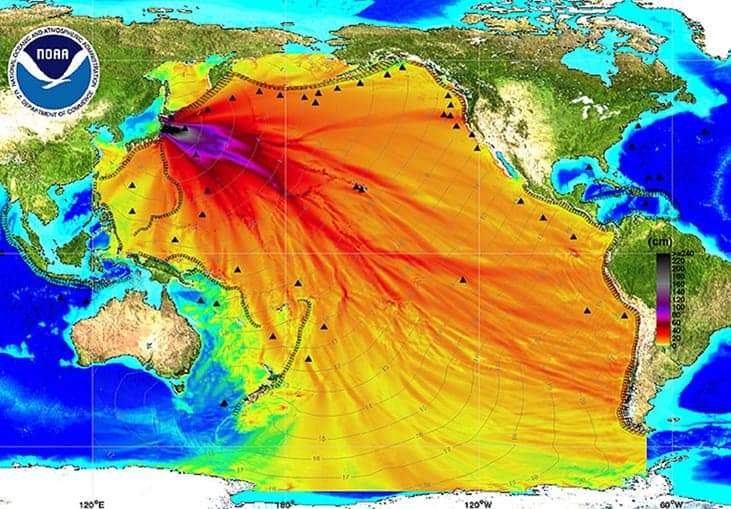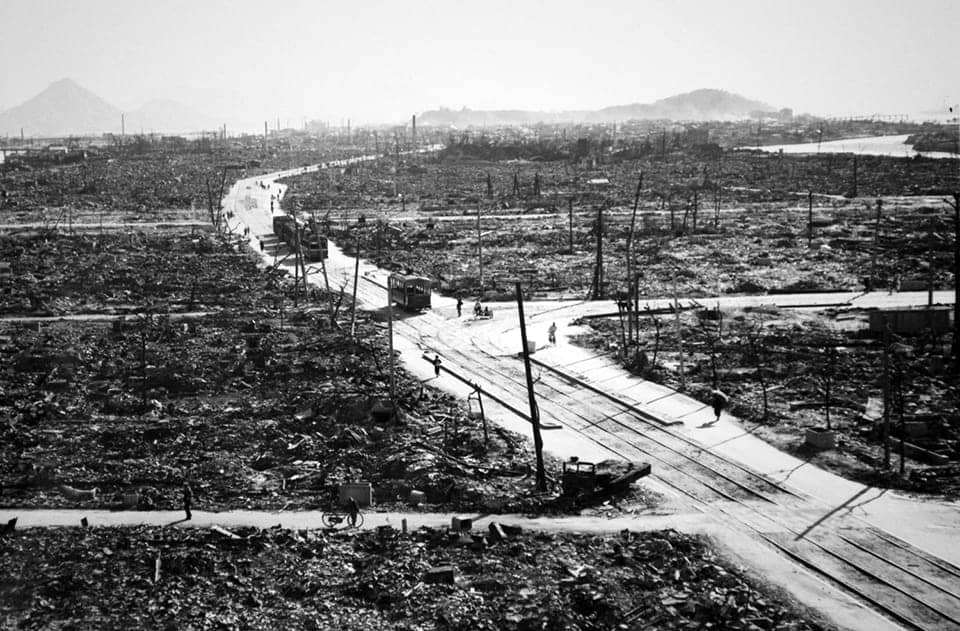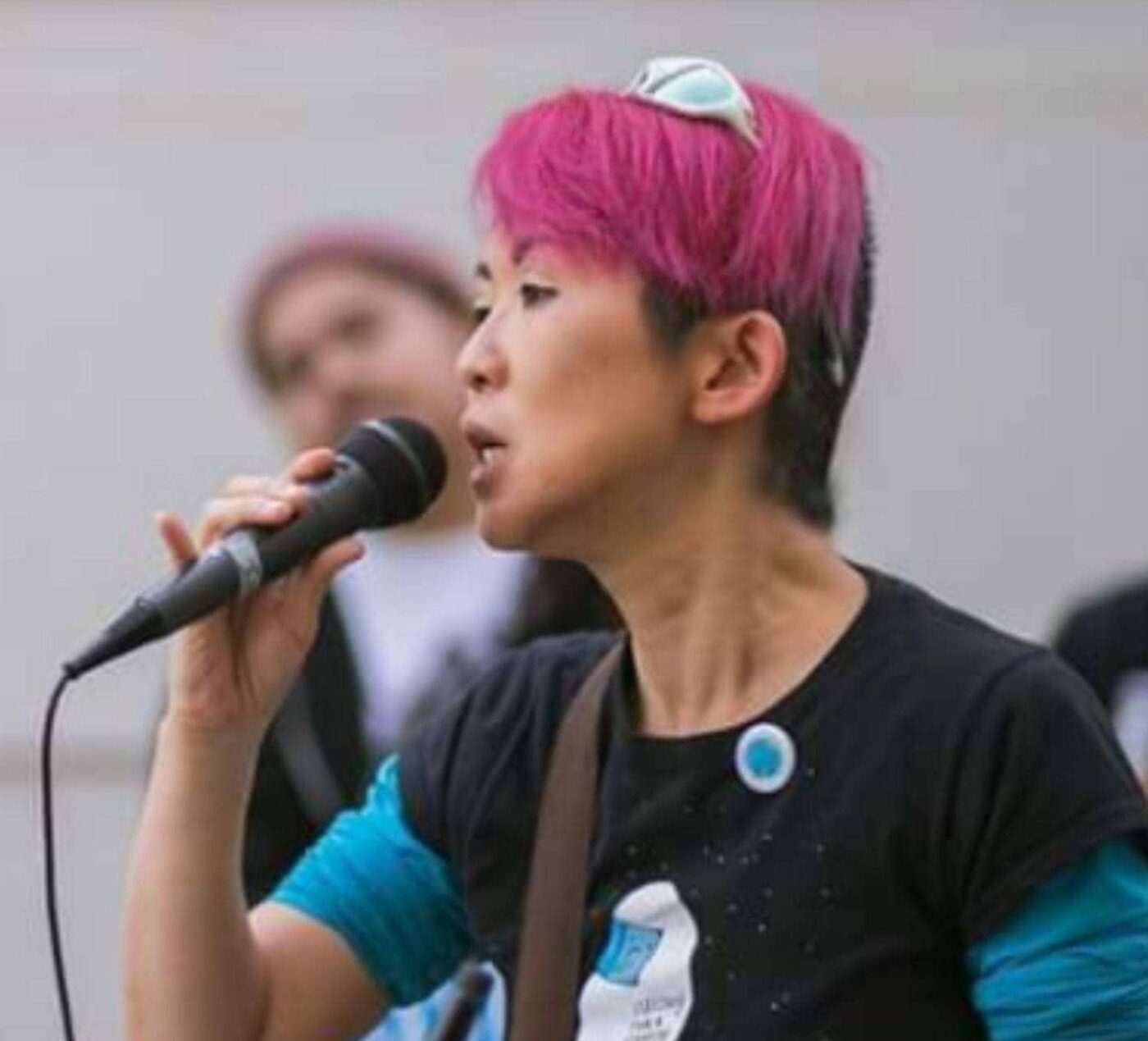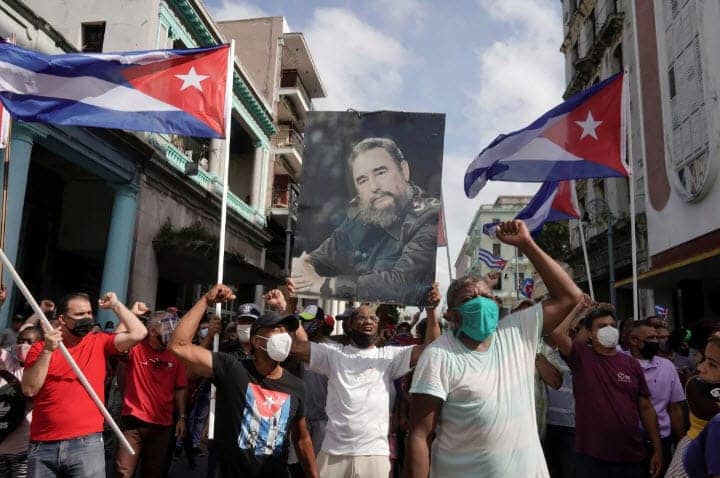No more sacrifices
 This is the atomic bomb “Little Boy” at the Hunters Point Shipyard being loaded onto the USS Indianapolis on July 15, 1945. That one bomb killed 140,000 people when it was dropped on the Japanese city of Hiroshima on Aug. 6, 1945. Thursday, July 15, 2021, is the 76th anniversary of the loading of the bomb at the Shipyard.
This is the atomic bomb “Little Boy” at the Hunters Point Shipyard being loaded onto the USS Indianapolis on July 15, 1945. That one bomb killed 140,000 people when it was dropped on the Japanese city of Hiroshima on Aug. 6, 1945. Thursday, July 15, 2021, is the 76th anniversary of the loading of the bomb at the Shipyard.Statement of solidarity by the Pacific Asian Nuclear-Free Peace Alliance with the people of Bayview Hunters Point, San Francisco
by Tsukuru Fors, Founding Member, Pacific Asian Nuclear-Free Peace Alliance
On July 15, 1945, a canister of approximately 3 feet by 4 feet and a large crate were loaded onto the USS Indianapolis at Hunters Point in southeastern San Francisco. Nuclear ingredients in the canister and a firing device in the crate were later assembled into an A-bomb called “Little Boy,” which exploded over the sky of Hiroshima, Japan, on Aug. 6, 1945, killing as many as 140,000 in a matter of a few months, including 350 students at a high school that I graduated from.
Both Hiroshima and San Francisco have a special place in my heart. The city of Hiroshima taught me the meaning of belonging in my teenage years, while in my young adulthood San Francisco was the city where I learned to stand firmly in my own conviction. Little did I know that these two cities dear to my soul were somehow tied by an unbreakable bond called the nuclear legacy.
The connection between the two cities was not a fleeting one. It was not only that the components of the A-bomb passed through the city. Hunters Point has its own toxic legacy of nuclear contamination that has plagued and haunted its residents to this day.
This year I learned that the Hunters Point Shipyard suffered radioactive contamination during the Cold War from ships brought there after atomic-bomb tests. And not only that, but portions of the shipyard were also used by the Naval Radiological Defense Laboratory (NRDL), the premier radiation research laboratory of the post-World War II era. Thus, parts of the shipyard have been contaminated by the use, storage, accidental spills and intentional discharges and disposals of radioactive materials.
In 1994, the Northern California Cancer Center revealed that the SF Bay Area had the highest incidence rates of invasive breast cancer in the world, although the link to the area’s history of radioactive contamination has never been officially substantiated.
Once victimized, they have been lied to repeatedly, silenced, neglected and abandoned by corporations and governments.
Today some 9,000 Bayview Hunters Point residents are fighting a class action lawsuit to halt multibillion-dollar development at the former shipyard for fear that dust stirred up by construction could be harmful to nearby schools and homes; they are demanding more extensive testing by outside scientists to ensure safety. Another lawsuit is underway against a Navy cleanup contractor Tetra Tech EC for allegedly falsifying radiation tests.
In 2004, the U.S. EPA, the California Department of Toxic Substances Control and the San Francisco Department of Public Health declared the hilltop portion of the shipyard “safe” for residents, while the 2018 discovery of radioactive objects near the site suggests otherwise.
Learning all these facts that I did not know before, even though I lived within a half-hour drive of the shipyard for a few years back in the early 1990s, the word that kept echoing in my mind was “sacrifices.”

Pacific Asian Nuclear-Free Peace Alliance, our small grassroots group in Los Angeles, California, was founded in 2017 as “Fukushima Support Committee,” not only to “support” victims of the 2011 Fukushima Daiichi nuclear disaster, but also to call attention to and to dismantle the political, societal and economic systems that normalize sacrifices of underrepresented communities for the benefit of a select few. Therefore, when we say, “No More Hiroshima, No More Nagasaki, No More Fukushima,” we are referring not only to nuclear attacks in wartime and nuclear power plant accidents, but also to people and communities that have been and continue to be harmed by all activities within the nuclear chain including uranium mining, nuclear testing and dumping of nuclear waste.
In the case of Hiroshima and Nagasaki, civilians’ lives were sacrificed for the nationalism and militarism of Imperial Japan. In Fukushima, the health and safety of the area residents were and still are jeopardized by corporate greed and political force to protect these corporations.
Some speculate that Sasebo is becoming a strategic outpost for the US Navy in a possible conflict with China.
People were made to believe that there was no danger or that the perceived risk was worth taking for the promises of good jobs and economic prosperity of the region. However, once victimized, they have been lied to repeatedly, silenced, neglected and abandoned by corporations and governments who should have been accountable for their wellbeing. I see many similarities between Fukushima and Hunters Point.
On a more personal note, I was born and raised in the US military town of Sasebo, Nagasaki. Sasebo’s main industry has always been shipbuilding and, as such, it has benefitted from the presence of the US Naval base and Japan’s Self Defense Force (JSDF).
In 1968, three years before I was born, Sasebo became the site of a violent protest. The nuclear-powered aircraft carrier USS Enterprise docked at Sasebo Harbor and people were angry because many believed the ship was carrying nuclear weapons in violation of a government ban on the manufacture or presence of such weapons on Japanese territory.
Recently, I was shocked to find that today US nuclear-powered aircraft carriers still dock at Sasebo from time to time, triggering no or little protest. In fact, some speculate that Sasebo is becoming a strategic outpost for the US Navy in a possible conflict with China. This is a frightening thought, but I imagine such concerns are hushed and brushed aside in favor of the promises of good jobs and economic prosperity of the region.
Across the Pacific Ocean we may be of different races, speak different languages, and prefer different foods; however, we are linked by the nuclear legacy and united by the same pain and suffering. On July 15, the day when the cursed cargo was loaded onto the USS Indianapolis at Hunters Point 76 years ago, I stand in solidarity with people of Bayview-Hunters Point in their fight for the health, safety, equity, and dignity of their community, for we are united in the same fight. No more sacrifices.
Tsukuru Fors, founding member of the Pacific Asian Nuclear-Free Peace Alliance, can be reached at tsukuru.fors@gmail.com.










